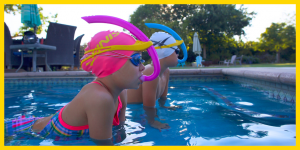February 12, 2020
Michael Phelps, who’s already been on record suggesting that the United States Olympic Committee (now United States Olympian and Paralympic Committee), needs to do more to help athletes who are struggling with depression, has more to say on the topic in light of William Moreau’s lawsuit alleging that he was fired by USOPC for questioning how it handled sexual assaults and mental health treatments.
According to an article in the Washington Post, when the Post asked Phelps how USOPC leadership responded after he went public about his battle with depression while swimming, he responded with silence, indicating that’s what he had heard from the USOPC.
“How long should I stay silent? I can sit here and be silent for as long as you want, because that’s what I got.”
In the Post article, Phelps echoed statements he’s made before, saying that USOPC offers no resources for dealing with depression and suicidal ideations and that he suspects that periodic depression may affect up to 70% of Olympians.
Not only does USOPC not help athletes in this regard, Phelps says, but to the contrary, he was concerned that had he disclosed his struggles with depression while an active swimmer, that information would not have remained confidential. “At his height as a competitor, Phelps feared if he confessed the need for help to a USOC official, it would spread all over the organization,” says the Post.
“I don’t know of anything they’ve done to help us mental health-wise,” Phelps says. “There are a lot of us who feel the same exact way, and we’re pretty hurt that they choose not to do anything about it. . . . I believe they only care about us when we’re swimming well or competing well.”
Moreau, who previously was USOPC’s vice president of sports medicine, has alleged in his lawsuit that “USOC is not following standards of care relating to the management of suicidal athletes.” USOPC executives have disputed Moreau’s account, including why he was let go from the organization.
Regardless of the merits of Moreau’s specific claims, it is clear that mental health continues to be an issue for athletes, especially swimmers. In just the past year, high-level swimmers like Ashley Neidigh, Jack LeVant, and Tom Shields have opened up about their mental health struggles, joining the ranks of elite of swimmers who had previously spoken about the topic, including Phelps, Ian Thorpe, and Allison Schmitt, just to name a few.
USA Swimming does seem to be taking steps to help address athletes’ mental health concerns, including partnering with Talkspace to offer mental service to all National Team athletes.
Read the original article here
Recent Articles
Dylan Carter
Chelsea Hodges
Lorenzo Zazzeri

Introducing the Stability Snorkel Jr
Share on Social Media


